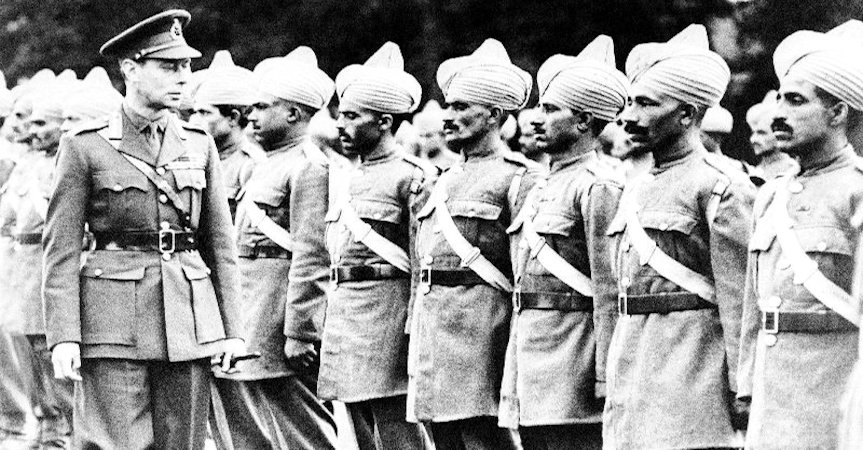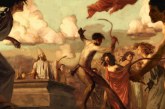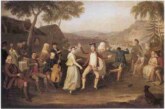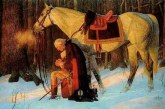
“War does not determine who is right, only who is left.” — Bertrand Russell.
It was World War II, when the British Indian soldiers marched into the heat of the battle, many of them were not even adults. Most of them were people looking for a way to make a living and some were just pushed into the bloodshed by their circumstances. According to a report, about 30% of the soldiers were either underweight, had some form of long-term illness, or were malnourished. Moreover the 1943 Bengal Famine, which caused the death of more than 3 million Bengalis, only added salt to the injuries. Yet, the Indians were vigilant throughout the war. Reminiscing that era, we bring to you stories of many such soldiers who laid down their lives fighting a war, they were not supposed to.
Military historian, Robert Lyman wrote in his book — Japan’s Last Bid for Victory: The Invasion of India 1944, “The Japanese regard the battle of Imphal to be their greatest defeat ever.” It was the battle of Imphal that saw some common Gurkha people become legends in their own right. The Japanese were relentless striving to gain an upper with their superior weaponry, whereas, most Gurkhas didn’t even have proper arms and ammunition. But, as the saying goes, battles are won by tact, tenacity, and will. Gurkhas had a lot of that, living in rough mountainous regions, the Gurkhas were hardworking people and the Japanese were barely an obstacle for them. Often referred to as one of the fiercest fightbacks of world history, the Gurkhas along with the British soldiers managed to drive away the Japanese soldiers. But, Imphal was not the only place which the Japanese were targeting. Kohima and parts of Burma (now Myanmar) were also targeted. But, the British Indian army managed to defeat the Japanese on this battlefield as well. Military historians argue that there were about 85,000 Japanese soldiers who were on the battlefield, out of which about 53,000 were either killed or had gone missing. On the other hand, the British Indian army suffered casualties of 16,500 soldiers. Some localities who were mere children at the time often reminisce by saying, “We were kids when we the battle was fought, we saw tanks for the first time and at that time we thought that they were animals with impenetrable skin.”
While there were heroes in the battle, many also lost their lives. The official records say about 87,000 soldiers from undivided India were killed during World War II. Most of whom are not even remembered by their fellow countrymen. “It is strange; we were ruled by the British, we fought for them, some soldiers were rewarded, most were not even acknowledged,” laments an Indian old soul, who was in his early teens during World War II. Many Indians in the war were non-combatants; they were cooks, tailors, and bootmakers. They incurred injuries, which they carried for the rest of their life or died on the battlefield. One such bootmaker is Ghafur, whose grave can be seen in present-day Eritrea. Similarly, there are thousands such untold stories of Indians and other South Asians, who were not soldiers but were at the wrong place, at the wrong time. It was also during this time that workers who were building the Ledo Road between China and India died because of malaria and other tropical diseases. Don’t bother searching, history hardly remembers people who are not significant, after all, they were mere laborers. They were not monarchs or soldiers, we are talking about a war where most soldiers didn’t get the due respect they deserved, so laborers not being mentioned is not even a surprise. I think we should be glad that it was recorded as an incident.
World War II was also the period that gave rise to the “Azad Hind Fauz” — comprising of war prisoners, Indian expatriates, and other people of undivided India, who dreamt of an independent India. It was led by Netaji Subhas Chandra Bose, who was known for his defiant sense of patriotism and perseverance. The Azad Hind soldiers lost the battle against the British but were later hailed as heroes. The British Indian army and the “Azad Hind Fauz” laid the foundation of the modern Indian National Army.
However, most soldiers of undivided India who fought in World War II remain unacknowledged till this day. There have been commemorations of these soldiers in the United Kingdom. But in their own country, they remain unsung. Yes, most modern Indians would give you the surprised look if you told them that India was a part of World War II (or at least British India was). This is one of the greatest ironies of life, the reluctant heroes who had nothing to do with the war, had to fight it. They helped their oppressors win against an enemy they knew nothing about. They gained no recognition, they gained no respect, and history remembers only a few of them.
That was it for this part, we will reveal more details on these reluctant heroes on the second part of this article. Until then, keep reading and stay informed.




